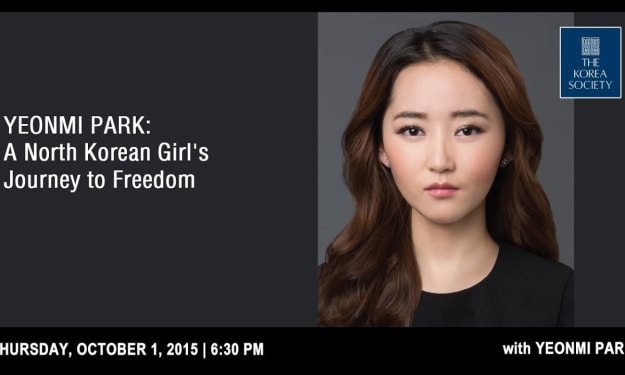Content warning
This story may contain sensitive material or discuss topics that some readers may find distressing. Reader discretion is advised. The views and opinions expressed in this story are those of the author and do not necessarily reflect the official policy or position of Vocal.

J. Robert Oppenheimer was an American physicist and one of the key figures in the development of the atomic bomb during World War II. He is often referred to as the "father of the atomic bomb." Oppenheimer's contributions to the Manhattan Project, a top-secret research project during the war, led to the successful development of the first atomic weapons.
The Manhattan Project was a significant historical event as it marked the beginning of the atomic age and had a profound impact on the course of history. The development of atomic weapons ultimately led to the bombings of Hiroshima and Nagasaki in Japan in August 1945, which contributed to the end of World War II. These bombings also brought about significant ethical and moral debates surrounding the use of such powerful and destructive weapons.
Early Life and Education:
Julius Robert Oppenheimer, known as J. Robert Oppenheimer, was born on April 22, 1904, in New York City. He came from a wealthy family of Jewish immigrants who had a deep appreciation for education and culture. Oppenheimer demonstrated exceptional academic abilities from an early age and excelled in mathematics and science.
He attended the Ethical Culture School in New York City and later pursued his undergraduate studies at Harvard University. There, he studied a wide range of subjects, including chemistry, literature, and languages. He developed a fascination with theoretical physics, leading him to work with prominent physicists like Percy Bridgman and Ernest Lawrence during his time at Harvard.
Academic and Scientific Career:
After completing his undergraduate studies, Oppenheimer went on to pursue a Ph.D. in physics at the University of Göttingen in Germany. He worked under prominent physicist Max Born and developed a deep interest in quantum mechanics and the behavior of electrons.
Upon returning to the United States in the early 1930s, Oppenheimer became a professor at the University of California, Berkeley. He made significant contributions to theoretical physics and astrophysics, collaborating with other leading scientists of the time. His work on neutron stars and black holes was particularly groundbreaking.
The Manhattan Project:
As World War II began, scientists around the world became increasingly concerned about the possibility of Nazi Germany developing atomic weapons. In response to these fears, the United States government initiated the top-secret Manhattan Project in 1942. The project's goal was to develop an atomic bomb before the Axis powers.
Due to his expertise in theoretical physics and his leadership skills, Oppenheimer was appointed the scientific director of the Manhattan Project. He assembled a team of brilliant scientists, including Enrico Fermi, Richard Feynman, and Niels Bohr, to work on various aspects of the bomb's development.
Los Alamos Laboratory:
Oppenheimer selected Los Alamos, New Mexico, as the location for the primary research and development facility. The Los Alamos Laboratory became the central hub of the Manhattan Project. Oppenheimer's leadership was crucial in coordinating the efforts of thousands of scientists, engineers, and support staff who worked on different aspects of the bomb's design.
Development of the Atomic Bomb:
Under Oppenheimer's guidance, the team successfully designed and tested the first atomic bomb, code-named "The Gadget." The test, known as the Trinity test, took place on July 16, 1945, in the desert of New Mexico and resulted in the successful detonation of the first nuclear device.
Ethical and Moral Dilemmas:
Oppenheimer's involvement in the Manhattan Project brought him face-to-face with profound ethical and moral dilemmas. He was well aware of the potential devastation that atomic weapons could cause. After witnessing the successful Trinity test, he famously quoted a line from Hindu scripture, the Bhagavad Gita: "Now I am become Death, the destroyer of worlds."
Post-World War II:
After the bombings of Hiroshima and Nagasaki in August 1945, Oppenheimer became an advocate for international control of nuclear weapons and was instrumental in establishing the United States' nuclear policy. However, due to concerns over his past associations with communist sympathizers and leftist organizations, he faced security clearance problems during the early years of the Cold War. This ultimately led to the revocation of his security clearance in 1954, tarnishing his career and personal life.
Legacy:
Despite the controversy surrounding his security clearance, Oppenheimer's contributions to science and the Manhattan Project are widely acknowledged. He received numerous honors and awards throughout his career, including the Enrico Fermi Award in 1963.
J. Robert Oppenheimer's life and work serve as a reminder of the dual nature of scientific progress - the potential for great advancements in knowledge and technology, along with the responsibility to consider the ethical and moral implications of such discoveries. His story remains relevant as it raises questions about the role of scientists in society, the responsible use of scientific knowledge, and the importance of fostering open dialogue on ethical dilemmas associated with scientific advancements.
About the Creator
Nikk
Writing is the magic that turns thoughts into words, breathing life into ideas and stories






Comments
There are no comments for this story
Be the first to respond and start the conversation.